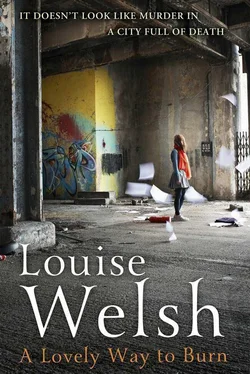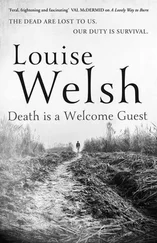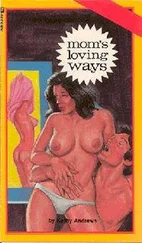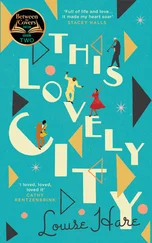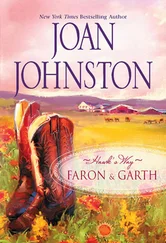Stevie stopped at a red light and saw a man standing beneath a flickering lamppost, raising his arms in the air. She rolled down her window and heard him shout, ‘The four horsemen of the Apocalypse have saddled their horses and are galloping towards us.’ He put a hand to his ear. ‘Can you hear their spurs? Do you feel their breath against your neck? Soon the honest dead will rise from their graves and all sinners will be cast into Hell’s fire.’ The man saw Stevie watching him and pointed at her. ‘You know the pain of burnt flesh. Imagine the pain of burning all over your body, for all time, all eternity . . .’
The lights changed and she drove on, but it was hard to make headway. People spilled into her path as if, now that they had flung off the division between night and day, the boundary between road and pavement no longer existed. There was a holiday recklessness to the crowds, a sense of ragged revelry. She wondered if this was how it had been in the old days, when families packed a picnic and treated themselves to an outing to Newgate to watch the hangings.
A flock of youths on undersized bikes tore across the Mini’s path, bandit-quick, hoods up, mouths and noses hidden behind scarves and surgical masks. They vanished up a side street, fast as smash-and-grab men. A bag slid from one of the boys’ handlebars as he rounded the corner. A bottle shattered, tins bounced and dented against the tarmac, and Stevie realised that their booty wasn’t from electrical stores, sportswear outlets or computer shops, but a supermarket. She turned a corner and saw the supermarket, squat and shining, its car park jammed worse than any Christmas Eve. Men and women struggled to their cars, pushing ill-balanced trolleys heavy with supplies. Stevie paused to watch. The shoppers had an anxious edge, but assistants were still tidying away abandoned trolleys and it was clear that the customers were hoarders and not looters. A car tooted impatiently behind her and Stevie moved on.
She was used to driving home in the early hours. The night-time city was a world beyond her windscreen, the preserve of drunks and police, of prostitutes, insomniacs, kerb crawlers and shift workers. She was used to stumblers and head-down walkers. But Stevie knew that London was unpredictable, a city that could explode into pitched battles, Molotov cocktails, burning cars and blazing buildings.
She drove cautiously, keeping to the rules of the road, until three buzz-cut-bald men approached her car at a red light, put their weight against its roof and started to rock it from side to side. They were chanting something, a football song she didn’t recognise. Stevie put a hand on the horn and her foot to the floor. Her right tyre skidded against the tarmac and she thought the Mini might roll, but the combination of horn and spinning wheels startled the men and they let go. After that she no longer bothered with traffic signals.
Busy streets held their terrors, but sliding back into the black, travelling the unfamiliar roads with only the glow of her headlamps to guide her, was even more unsettling. The unlit pavements looked deserted, but once her eyes became accustomed to the gloom, she caught glimpses of people moving in the darkness, and was glad of the knife in her bag.
She only stopped once on an unlit road, when a fox stepped into the Mini’s path and forced her to hit the brakes. The fox was skinny, its flanks hollow and scraggy, as if it had not quite recovered from a fight. But the creature stared at her, holding its ground, eyes gleaming like polished metal. Stevie tapped the horn. The fox blinked, gave her a last assessing look, and then trotted into the dark with no more haste than a family dog returning from a stroll. Stevie wondered if it sensed something afoot, a chance that it and its kind might soon have more sway.
She tuned the radio to Radio London and set the volume low, so it wouldn’t drown out the voice of the satnav. The presenter was interviewing a reporter somewhere on the streets of the city. Stevie thought she could detect a sense of excitement in the broadcasters’ voices, exhilaration that the news was right on their doorstep. The quiet hum of their words accompanied her journey: curfew . . . power failure . . . lack of manpower . . . looting . . . army . . . rationing . . . closures of nuclear facilities . . . food shortages . . . There was health advice too, instructions to stay at home, to drink plenty of water, to keep children indoors. Schools were closed and teaching suspended, though some had been reopened as official quarantine centres. There was a phone number for relatives of the sick to call, though once again the advice was to stay at home ; going to hospital would only result in further delays .
The satnav instructed her to turn left . Stevie obeyed and the mechanical voice announced with a sense of pride that usually made her smile: You have reached your destination . She looked at the bonfire barricading the entrance to Melvin Summers’ street and whispered, ‘Thank you.’
Stevie had passed other fires on her journey, distant orange glows that had reminded her of Guy Fawkes Nights of her early childhood, the smell of rotting leaves, burning wood and petrol, the thrill of sanctioned danger. She had been scared of fireworks, had held her mother’s hand fast and refused to go near the front of the crowd for fear of flying embers.
The bonfire blocking her way was as high as any her local council had organised. There were figures moving around the blaze but the fire’s glow was too bright to make out their detail. They might have been trying to guard the road, or raze it to the ground. One of them peeled away from the group and walked towards her car. The firelight illuminated the smears of blood and fingerprints on the passenger window. Stevie remembered the way the strange girl and her companion had tried to push it open. She felt in her bag for the knife she had taken from home and laid it in the shadows of the passenger seat.
The figure made a circling gesture with his hand, indicating that she should turn her car around and drive away. Stevie stayed where she was. The satnav image Iqbal had printed showed that Melvin Summers’ street was a dead end. This was her only way in.
The figure stood still for a moment. She could see that it was a man now, though his features were hidden by a scarf tied around his nose and mouth, like a bandit in an old cowboy film. The man was short, his body square and stocky. His stance was less confident than the fox’s. The creature had seemed to challenge her; the stranger looked hesitant, despite the stick in his hand. Stevie switched off the headlamps so that the man could see her face. She scrolled the window down a smidgen and turned off the engine.
‘I’m not going anywhere,’ she whispered.
It was as if the man heard her. He took a few tentative steps forward, stopped about a foot away from the passenger window and shouted, ‘This road is under lockdown. Turn your vehicle around and go away.’
The formal words sounded stilted, as if they belonged to an unfamiliar script the stranger was following. Now that he was closer Stevie could see that what she had taken for a stick was actually a metal bar. She wondered where you would find such a thing.
‘I’m here to visit someone.’ She leant across the passenger seat, resting a hand on the hilt of the knife, and raised her voice. ‘Melvin Summers. He lives in this street.’
‘I’m sorry,’ the man said, shaking his head, ‘but there’s no coming and going from here, love.’
His voice was muffled by the scarf tied around his face. It was hard to guess his age without seeing his features, but the leather jacket he was wearing was ten years out of fashion, the body beneath it broad and running to fat.
Читать дальше
